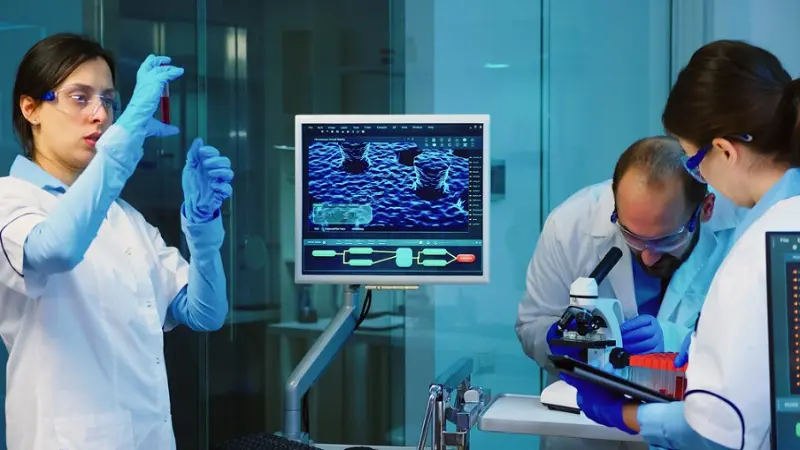Technology has transformed several aspects of healthcare including several operations. Among the most evolved healthcare service technologies available is diagnostics. A significant healthcare development since molecular diagnostics enables doctors to identify and treat different ailments. Modern medicine searches for viral infections and genetic abnormalities using molecular diagnostics. Molecular diagnostics, their applications, and ways in which technology might advance them are covered in this paper.
- Molecular Diagnostics
Molecular diagnostics lets doctors assess a patient’s proteins and DNA levels in order to pinpoint a condition. These tests produce the identification of certain DNA or RNA sequences perhaps connected to a given disease. Molecular diagnostics gives doctors more accuracy in identifying diseases before their symptoms show up than more traditional diagnostic techniques.
By means of genomic sequencing, medical professionals can identify a gene linked to a hereditary disease and start preventative treatment before the problem starts to manifest symptoms. Two fields of medicine where it is clear that a proactive approach is rather crucial in terms of improving patient outcomes are infectious diseases and oncology.
- Why it is Important
Molecular diagnostics finds various applications influencing many different facets of healthcare. Applications mostly in the fields of pharmacogenomics, genetic testing, cancer screening, and infectious illness detection abound. One very useful technique for determining the pathogens causing infectious disorders is molecular diagnostics. By identifying the exact microorganisms causing ailments, tests help doctors advise the best lines of action.
Tools like real-time PCR technology, which makes faster interventions possible, help to rapidly detect bacterial and viral illnesses. In oncology, timely diagnosis is everything. More customized treatment regimens are made possible by molecular diagnostics, which find genetic changes associated with some cancers. Doctors can improve patient outcomes by customizing a treatment for the genetic features of a tumor. While genetic testing can find inherited diseases, pharmacogenomics helps doctors prescribe medications depending on patient-specific genetic differences.
- Technology is the Engine of Molecular Diagnostics
In order to improve the effectiveness of molecular diagnostics, technology is essential. These procedures are now faster and more accessible thanks to a number of improvements, such as portable diagnostic devices and powerful sequencing technology. A major development is the quantitative pcr machine, which lets a sample’s DNA or RNA be identified and quantified.
Healthcare professionals may now quickly and accurately monitor DNA amplification in real time thanks to this technology. For the diagnosis of infectious diseases, monitoring the effectiveness of treatment, and carrying out epidemiological research, real-time PCR equipment is highly helpful. These devices’ precision reduces false positives and negatives, giving clinicians more solid information on which to base their treatment choices.
- Benefits of Molecular Diagnostics for Patients
The influence of molecular diagnostics on patient treatment is significant. Advantages encompass early identification and enhanced results, individualized treatment, focused interventions, and decreased healthcare expenditures. Molecular diagnostics facilitate early disease diagnosis, enabling timely therapies that frequently yield improved patient outcomes. This proactive strategy facilitates less invasive treatments, markedly enhancing patients’ quality of life.
Moreover, the capacity to customize therapies according to an individual’s genetic profile improves efficacy and minimizes adverse effects. Furthermore, early detection and accurate diagnosis diminish the necessity for lengthy testing and superfluous treatments, hence aiding in the prevention of expensive consequences and hospitalizations.
As technology advances, molecular diagnoses are becoming more practical. Wearable diagnostics, CRISpen gene editing, and next-generation sequencing (NGS) are among recent advances in this field. Technology is developing; hence the sector is positioned to provide more benefits. Understanding the relevance of molecular diagnostics is critical for both healthcare providers and anyone interested in the future of medical technology, as it emphasizes the continuous developments in modern healthcare. The inclusion of tools such as quantitative pcr machines into everyday clinical practice emphasizes the importance of these advances in improving healthcare outcomes and patient care.
